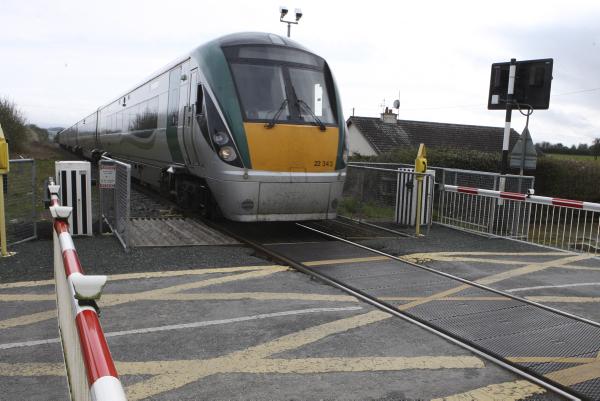If you’re looking to get a train from Cork or Clare to the capital this weekend, you’ll be hard pushed to find a seat. Up to 8,000 passengers are expected to make the journey from Cork to Dublin, while 7,000 passengers may travel from Clare – so being prepared really pays off.
Ticket Desk Charges
Tickets will be well and truly sold out this weekend, but consumers can usually purchase a trip from Cork to Dublin at the ticket desk for €79.50, while Clare passengers would be looking at a price of €73. This is, however, one of the most expensive ways to purchase your ticket.
Booking online and travelling off-peak offers real savings, with an adult single ticket from Cork or Clare to Dublin costing just €14.99 if booked over a week in advance.
You won’t find those prices this weekend though, with the cheapest online single ticket costing €24.99 from Ennis, and €32.99 from Cork if you booked a week in advance.
Irish Prices On Par
While these prices may appear very steep, the good news is that, although Iarnród Éireann has a monopoly on Irish trains, consumers aren’t being charged over the odds in comparison to other European countries.
In fact, while some off-peak train tickets are cheaper in the likes of Italy and Belgium, consumers in Germany are paying double the amount we are charged.
SmartShopper research looked at the price of trains departing from large cities across Europe to destinations within the same distance range as Cork to Dublin – approximately 270km away. While the cheapest Cork to Dublin return online fare is €29.98, prices in Spain, Holland and France are very much on par. Travelling from Paris to Bayeux (269km) costs €30, while those travelling from Zaragoza to Vitoria in Spain (273km) will be charged €28.10.
||PIC2||
Cheap Seats
One of the cheapest train lines to travel with is located in Italy, where a return from Milan to Venice (267km) costs just €18. A similar distance trip from Berlin to Hamburg (277km) in neighbouring Germany will, at €74, cost over four times that amount.
While these are the cheapest charges that can be found, Ireland still fares pretty well when it comes to peak prices.
Friday evenings and Sunday evenings are always the most expensive time to travel, and, as mentioned, Irish consumers will face a ticket desk charge of €79.50 if travelling from Dublin to Cork.
A similar trip from London to Sheffield, departing at 5pm on a Friday and returning on Sunday evening, costs €110.60 (£95).
Cutting the Costs
While Irish prices fare well compared to other countries, there is still plenty we can do to reduce costs.
1. Buy online: While the benefit of buying at the station is that your ticket is fully flexible and can be used anytime – usually within 30 days of purchase – the downside is that it costs much more than buying online. By getting organised, planning your trip, and purchasing a week in advance, you can get your ticket for less than half the price, ie, buying a Cork to Dublin return fare at the ticket desk costs €79.50, while an off-peak online ticket costs €29.98.
2. Travel off-peak: No matter how hard you try, you’re always going to pay more to travel at 5pm on a Friday, versus 2pm on a Tuesday. If your travel plans are flexible, it will work in your favour.
3. Look for day-saver fares at the ticket desk: They only apply from Tuesday to Thursday and on some Saturday and morning trains, but they always work out cheaper, often costing €62 for a Cork to Dublin fare rather than €79.50.
4. Free travel pass: Get your train fare for free if you are 66 years or over, or have a recognised disability. With your free travel pass, your partner can also accompany you without being charged.
5. Student card: Students, make sure to always flash your Student Travelcard (available for €15 for 12 months with a valid student card) to get a few euros off. For example, if a Dublin to Galway adult return ticket costs €35.50, students would only be charged €22.
6. Train Taxsaver scheme: Although self-employed farmers won’t be able to avail of the Taxsaver scheme, maybe someone else in the family who regularly travels by train can. Your annual Irish Rail and Dublin Bus ticket will cost €1,420. However, if your employer is part of the scheme, that amount will be taken from your gross pay so you won’t be taxed on it. If you’re on an income of €30,000, that’s a saving of €738.
7. Bus Taxsaver scheme: A similar scheme also works for Bus Éireann. Their annual ticket costs €676, which is again taken from your gross pay so you pay no tax. For an individual on an income of €30,000, that’s a saving of €351.






SHARING OPTIONS